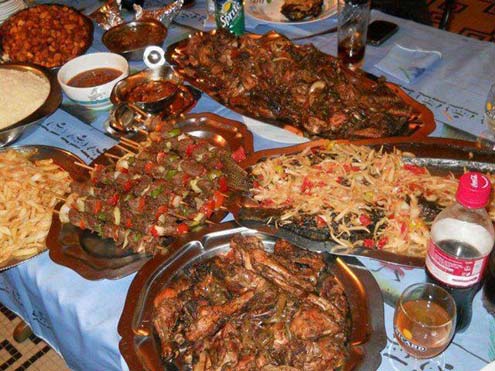People with high blood pressure (Hypertension) are particularly at risk during the holiday season because of heavy, rich meals and excessive alcohol consumption. Here are some food tips to keep your heart healthy while enjoying the spirit of Christmas and New Year’s.
The holidays are often a joyous and stressful time of year, filled with alcohol and a lot of yummy food. New Year’s Eve may be good for our spirits, but it can be bad for our heart health, especially for those at risk.
Menu: what foods raise blood pressure?
High blood pressure is an increase in blood pressure in the arteries. If not treated properly, it can lead to cardiovascular diseases, strokes, infractus…..
Certain dietary habits are conducive to high blood pressure, such as excessive consumption of salt, sugar, alcohol or animal fats. During the holidays, these products, which are easily found on our plates, can be replaced by other foods that are less harmful to heart health.
Whether you are preparing for the festivities, or are invited to join your family at the table, limiting blood pressure raising foods is entirely possible. To eat, drink and be merry without clogging your arteries and stressing your heart, follow these tips.
Limit added sugar in your diet
The cookies, cakes and other sweets that surround us at this time of year are a constant temptation. This makes it difficult to limit the consumption of foods containing added sugars. This type of food is associated with an increase in blood pressure, as well as an increased risk of heart attack and stroke.
Consider making your own desserts whenever possible. A 25% reduction in sugar in most recipes will not really change the taste. You can also replace some of the sugar in your recipes with a ripe mashed banana. Two tablespoons of banana replaces one tablespoon of sugar.
Limit excess salt in recipes
High sodium intake can increase blood pressure in people with high blood pressure. Health authorities recommend a maximum daily salt intake of 5 to 6 grams, or a maximum of 2,400 mg of sodium (one teaspoon). Many people exceed these limits, and typical holiday foods do not help us reduce this intake.
If you are preparing vegetables that are not fresh, opt for the frozen version rather than the canned. You can also replace some of the salt you normally use to season your savory recipes with plenty of herbs and spices. And as a snack for the aperitif, you can offer raw vegetables or raw vegetables to be crunched in strips, in small squares: cucumbers, carrots, mushrooms… This will leave more room in your stomach for the main course, and will be much better for your heart!
Limit alcohol consumption
Alcohol can add a surprising amount of calories to your diet. In addition, excessive alcohol consumption can increase: triglyceride levels, blood pressure, risk of serious problems such as stroke, heart attack etc.
During the festive meals, some less caloric (and therefore less sweet) drinks are to be preferred. You can toast your festive season with a glass of champagne or a glass of sparkling wine, or at the very least a glass of light red wine or dry white wine. The most important thing is to drink in moderation.
E.Allickan Niragira


Recent Comments